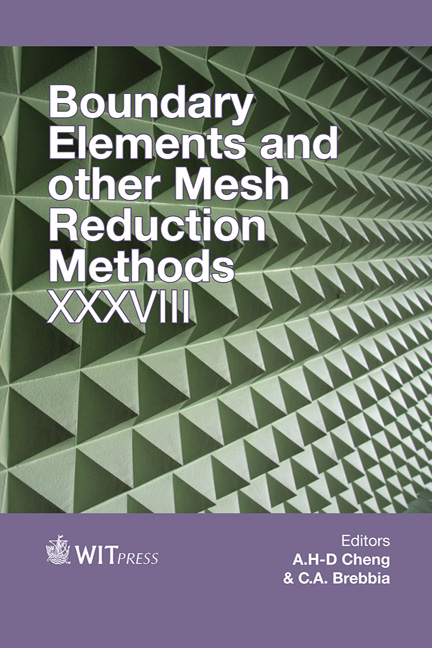A Local RBF Method Based On A Finite Collocation Approach
Price
Free (open access)
Transaction
Volume
61
Pages
12
Page Range
73 - 84
Published
2015
Size
1,010 kb
Paper DOI
10.2495/BEM380061
Copyright
WIT Press
Author(s)
D. Stevens, H. Power
Abstract
In this work we present an overview of the RBF finite collocation approach. The RBF-FC method is an alternative decomposition for the localisation of the radial basis function (RBF) collocation method for the solution of PDEs. In contrast to the popular finite difference approach, in which the PDE governing operator is reconstructed from simple RBF interpolants, the finite collocation formulation instead enforces all governing and boundary PDEs within the local RBF collocation systems, and assembles the field variable directly into a sparse global assembly. In this way the solution of the PDE is enforced by collocation, rather than by differencing. By including the PDE governing operator within the local collocation systems any data extracted from the RBF interpolation field naturally respects the local physics of the PDE, including information about the local convective field. This gives rise to an “implicit upwinding” effect, which allows stable solutions to be obtained in convective-dominant scenarios when using centred stencils. The approach also allows high rates of spatial convergence to be obtained. We present here an overview of the RBF-FC formulation, demonstrating the performance of the method with benchmark examples for linear elasticity and convection-diffusion PDEs. The adaptation of the method for unsteady problems is described, including a Richardson extrapolation method to improve rates of temporal convergence. The application of the method to the capture and transport of discontinuous profiles is also examined.
Keywords
meshless, radial basis functions, RBF local, finite collocation, linear elasticity, convection-diffusion, Richardson extrapolation, shock capturing





